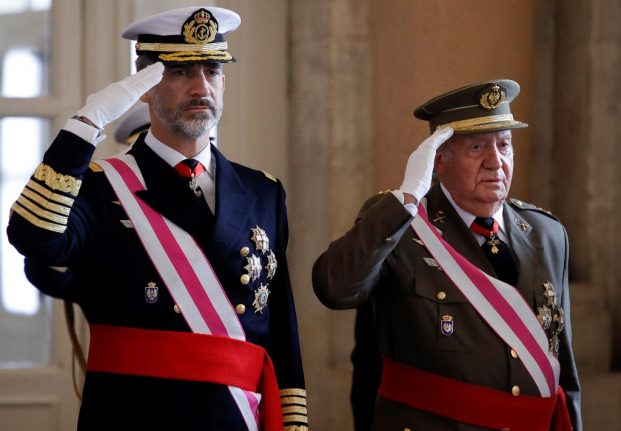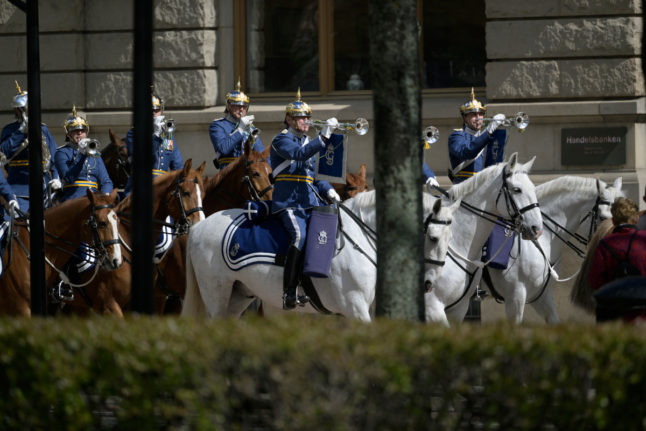The announcement came after reports earlier this month in the Swiss daily Tribune de Geneve that former monarch Juan Carlos had received 100 million dollars (90 million euros) from Saudi Arabia via an offshore account.
The money was lodged in a Swiss bank account in the name of a Panamanian foundation, the paper reported, according to which $65 million of that sum was given by Juan Carlos to his former mistress, Corinna zu Sayn-Wittgenstein.
A later report in Britain's Daily Telegraph said that 52-year-old King Felipe was also a beneficiary of the fund, which it said had been set up when Juan Carlos was still on the throne.
In the palace statement released Sunday, the reigning king said that in April he had made it clear to a notary that he would accept no money from the foundation in question.
He also said he had absolutely no knowledge of having been named as a beneficiary to another foundation, which according to press reports paid millions of euros towards his father's flights in private jets.
The statement said King Felipe was renouncing any assets, shares or investments that might be either illegal or compromise the royal family's integrity.
Spanish media reports say Juan Carlos has until now received an annual allowance from the state of more than 194,000 euros ($216,000).
Growing pressure from the left
The reaction from leftwing parties Sunday evening suggested that for them, at least, it was not enough.
On Twitter, economist Carlos Sanchez Mato of the United Left party, called on the king to renounce everything he stood to inherit from his father – including his role as head of state.
On Tuesday, the Spanish parliament decided against launching an investigation into suspected money laundering by the former king.
Spain's hard-left Podemos party had called for it after reports earlier this month that in 2008 Juan Carlos received $100 million from Saudi Arabia's King Abdullah via the Swiss account of an entity listed in Panama.
Podemos, which is part of the ruling coalition with Pedro Sanchez's Socialist Party, is avowedly republican.
Juan Carlos, now 82, came to the throne after the death of the military dictator Francisco Franco in 1975 and is widely respected for having favoured a transition to democracy.
But he lost his immunity from prosecution after handing power to his son, Felipe, in June 2014 following a 39-year reign.
He resigned from public life last year after a series of scandals about his private life.
In 2012, he outraged Spaniards by going elephant hunting in Botswana at the height of the country's recession.
But he is not the only Spanish royal to have been caught up in a scandal.
In 2018, King Felipe's brother-in-law Inaki, the husband of Princess Cristina, was jailed for more than five years for siphoning off millions of euros from a foundation he ran in the island of Majorca.
READ ALSO:



 Please whitelist us to continue reading.
Please whitelist us to continue reading.
Member comments